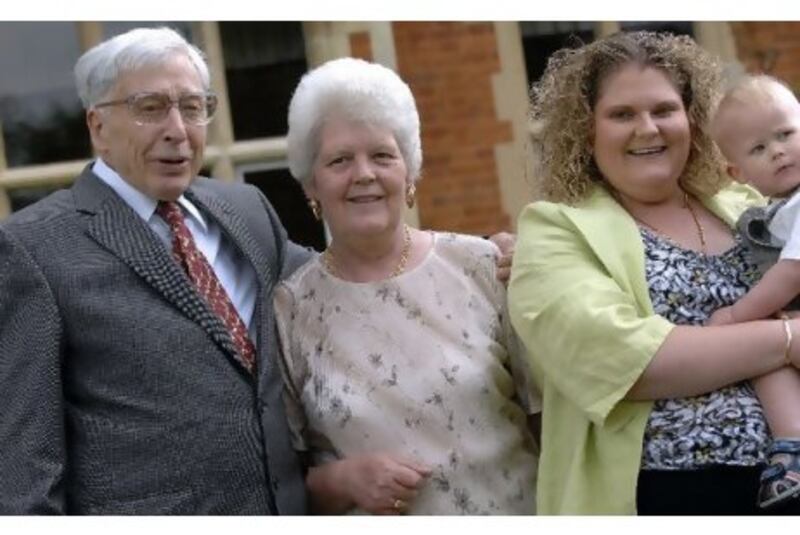Couples in Dubai struggling to conceive will soon be able to seek help at an in vitro fertilisation (IVF) clinic founded by the Nobel Prize-winning physician who pioneered the reproductive technology.
TVM Capital MENA, a healthcare equity fund, has invested in Bourn Hall International, an operator of IVF clinics, which plans to open reproductive centres across the region. The first Bourn Hall clinic outside of the UK is planned for Dubai by late next year, said Helmut Schuehsler, the chairman and chief executive of TVM Capital MENA.
TVM Capital MENA and Bourn Hall plan to open two or three more clinics within four years, including in the Levant and North Africa. Mr Schuehsler estimated the total investment would be between US$15 million (Dh55m) and $20m.
"For this type of service, Dubai is a good market," he said. "It's extremely well connected, and is … a regional hub. It is easy to get to, has a very stable and very big expatriate community."
The surrounding affluent population is also an asset, he said.
"It's the best place to put something like this, which more likely than not will be a health service paid [for] out of pocket, and therefore we want to be close to people who can afford it."
The expansion announcement comes about a month after Bourn Hall's founder, Robert Edwards, a British scientist who developed IVF, won the Nobel Prize in medicine for his work. His efforts began in the 1950s and resulted in the birth of the first "test tube baby", Louise Brown, on July 25 1978.
Bourn Hall has four clinics in the UK.
IVF is available at private and public clinics in the UAE, but there is high demand and the wait can be up to two years.
"The demand is high, quite high and growing," said Stefanos Fotiadis, the managing director of Bourn Hall International MENA. "And that is a global trend, it is not just the UAE. And there is not much so far in place in terms of serving the local demand. Already there are a lot of people who are going to other places to have this service. It is a matter of quantity and perhaps quality as well."
TVM Capital MENA is investing directly in the clinics but would also seek local investors to join the project, Mr Schuehsler said.
The first clinic in Dubai will be established as a referral point for the international clinics, he said. The group may eventually expand by acquiring existing IVF clinics.
"We just feel that this is the right time because the healthcare sector is developing very fast in many countries in the region. And this will totally professionalise this type of service by bringing, arguably, the best provider of this service to the region. When we grow we will be able and willing to grow by acquisition," Mr Schuehsler said.
The first clinic should be able to perform about 2,000 IVF or treatments per year, Mr Fotiadis estimated. Each clinic would have 50 to 60 staff and would accommodate about 600 to 700 couples annually, he said. Pricing in the region is still to be determined, but an IVF treatment package in a Bourn Hall clinic in the UK, excluding a pre-treatment assessment, costs about £2,950 (Dh17,315), according to the company's website.
Mr Fotiadis said he was confident Dubai would house Bourn Hall's international clinic, but the final decision would depend on local regulations and the Government's licensing process, which the company was about to start.
The clinic will also need to adhere to local laws and accommodate sensitivities regarding IVF. A 2008 Federal law that governs the licensing and regulation of fertility centres also bans the storage of frozen embryos.
Mr Fotiadis said Bourn Hall's clinics would adhere to the regulations. The clinics would probably store frozen eggs and sperm as an alternative, he said.
"We are very firm in fully complying with Sharia law, so all practices, processes, treatments, personnel are being put together in a way that is fully compliant."





